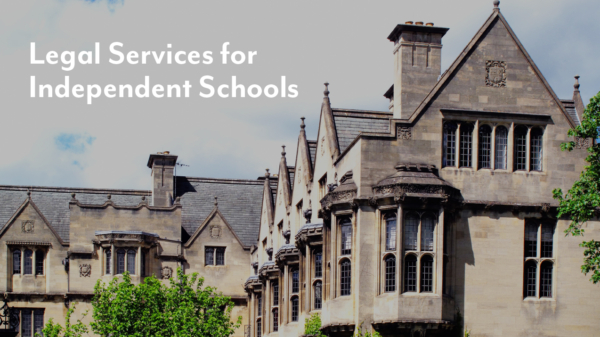

The highly-anticipated Employment Rights Bill (“the Bill”) was published on 10 October 2024 and has been described as representing the most significant change to workers’ rights in the last 50 years. This is Labour’s first phase of delivering its “Plan to Make Work Pay”. Accompanying the Bill, the government released a “Next Steps to Make Work Pay” document, providing further detail on the Bill, as well as other longer-term priorities.
Many schools and academies may have seen these changes on the horizon for some time, but the news may not offer any further reprieve in a time of already-heightened uncertainty as a result of increased costs across the sector.
The Bill is unlikely to come into force until 2025 and many of the rights will not come into force until further regulations are made by the Secretary of State – currently anticipated to be no earlier than Autumn 2026. Although these changes will not be implemented for some time, schools and academies should be mindful of the proposed changes and how they will affect them going forward.
Unfair dismissal rights from day one of employment
Labour had committed in its election campaign to remove the two-year qualifying period for unfair dismissal rights, and the publishing of the Bill demonstrates its intention to push forward with this pledge.
The Bill affords employees a right not to be unfairly dismissed from day one of their employment, which, at present, is only afforded to employees after two years’ continuous service.
The Bill introduces the concept of an “initial period of employment” and also makes several changes to enable employers to dismiss employees more easily in these early months. The duration of this initial period is not specified in the Bill, but the government’s current preference is for a nine-month period.
Schools will be able to use a modified dismissal process during the initial period, where the dismissal is as a result of poor performance, misconduct, capability, or some other substantial reason relating to the employee. Interestingly, redundancy is excluded from this list. The standard of reasonableness for such dismissals will be modified but full details of this process are yet to be published
Whilst previously, the termination of employment of an employee with less than two years’ service was seen as relatively low-risk, once the Bill comes into force, it will be far more difficult for schools to dismiss irrespective of length of service, and, especially once the initial period of employment has concluded.
Schools and academies should therefore consider reviewing their recruitment and probation review processes. Early identification of concerns relating to performance, misconduct or capability issues will be key, as schools will be afforded a much shorter window in which to address these issues without exposing themselves to the potential for claims of unfair dismissal.
Dismissal and re-engagement
The practice of dismissing and re-engaging employees on revised terms – known as “fire and rehire” – has been the subject of significant attention in recent years, largely as a result of the high-profile P&O Ferries case, which saw the dismissal of 800 workers in 2022. The practice was previously seen as the safest method legally of implementing changes to an employee’s contract where an agreement could not be reached, following a consultation process.
Whilst Labour had previously committed to ending the practice, the Bill does not go as far as that, but as currently drafted, will instead restrict options for implementing changes that are considered to be in the best interests of the school but are not essential to a school’s ability to carry on business, and where there is genuinely no other alternative. Any dismissal falling outside of this narrow exemption will be automatically unfair. This change will be particularly relevant to those schools and academies planning large-scale redundancy or restructuring exercises.
Schools and academies will have to take extra care in their preparation of business cases and will need to ensure that genuine and meaningful consultation process has been carried out with a view to reaching agreement with staff over proposed changes.
Even though the changes are unlikely to be implemented until Autumn 2026, schools and academies will need to be mindful of the reputational risks associated with dismissal and reengagement, which are likely to increase given the Government’s position, even in advance of any change coming into force.
Trade union rights
The Bill also includes provisions aimed at strengthening trade union rights. In particular, it introduces a new right for unions to access workplaces in order to meet, represent and recruit potential members; simplifies the process for a union to obtain statutory recognition; and requires workers to be provided with a written statement of their right to join a trade union.
Schools and academies have already seen an increased level of trade union activity in the past few years and more requests for trade union recognition. Given that many schools and academies are likely to be considering staffing restructures in response to financial pressures, the forthcoming changes in this area may may result in a stronger presence of the union in such discussions, and industrial action becoming a more common occurrence.
Zero-hours contracts
Another commitment by Labour in its general election manifesto was to ban zero-hours contracts which it described as “exploitative”.
Whilst the Bill does not seek to ban zero hours contracts, it sets out a requirement to offer guaranteed hours to workers on a zero-hour contract, with the intention being that such guaranteed hours should reflect the hours that they regularly work over a defined period, a 12-week period has been mentioned previously and is referred to in the Next Steps document.
There is a further right for workers to be given ‘reasonable’ notice if they are required to work a shift, as well as a right to ‘proportionate’ compensation where a shift is cancelled at short notice. What is ‘reasonable’ and ‘proportionate’ for the purposes of this right has not yet been clarified.
Schools should take note of these requirements where they employ staff on zero-hours contracts, commonly used for visiting music teachers, sports coaches, and exam invigilators. Although the government has moved away from imposing an outright ban on zero-hours contracts, the requirement to offer guaranteed hours will reduce the current level of flexibility for schools and academies, which may result in increased labour costs and resourcing challenges.
Other changes
Other notable changes that are set out within the Bill are as follows:
School Support Staff Negotiating Body
- The Bill includes provisions to establish a School Support Staff Negotiating Body which will be responsible for matters related to terms and conditions, remuneration, training and progression of support staff. We understand that this will apply to support staff at state-maintained schools, and academies.
Removal of the waiting period for Statutory Sick Pay (SSP)
- Statutory sick pay is currently payable from day four of sickness. The Bill removes the waiting period for SSP so that workers will be entitled to SSP from the first day of sick leave. It also removes the lower earnings limit, meaning all eligible employees, regardless of earnings, will be entitled to SSP.
Day one parental and paternity leave
- The Bill removes the 26-week service requirement for paternity leave, and the one-year requirement for parental leave, making both rights available from day one of employment.
Flexible working
- Although Labour had previously said it would make flexible working ‘the default’ from day one of employment, the Bill instead requires any refusal of a flexible working request to be reasonable, although the eight business reasons will remain the same.
Sexual harassment
- From 26 October 2024, employers must take “reasonable steps” to prevent sexual harassment of employees and workers in the course of their employment. The Bill strengthens this duty and requires employers to take all reasonable steps to prevent harassment. It also makes disclosures about sexual harassment protected disclosures for the purposes of whistleblowing and includes provision making employers liable, in certain circumstances, for the harassment of employees by third parties.
What steps can schools and academies take to prepare for the changes?
It is important to make it clear that the Bill is not yet law. It will now pass through the various stages of Parliament and will be subject to amendment and consultation. Some of the consultations have already commenced.
There are certain aspects of the government’s “New Deal for Working People” that have not been addressed in the Bill, for example the single worker status, except for those genuinely self-employed, as well as the right to disconnect, both of which appear to be longer-term goals.
For now, it is important that schools and academies are aware of the potential for significant change in employment law. This review highlights a selection of the government’s key proposals, but there are others, including changes to the National Living Wage and ethnicity and disability pay gap reporting.
Schools and academies should begin to reflect upon how these changes may impact their current working arrangements, policies and procedures. Specifically, you may wish to:
- Review recruitment policies and processes and arrangements for probation reviews to ensure they are sufficiently rigorous in anticipation of a change in the law regarding unfair dismissal protection
- Monitor changes to the law regarding dismissal and reengagement, in the context of strategic plans for workforce change
- Review existing internal arrangements for staff engagement, communication, and negotiation, given the plan to simplify the process for trade unions obtaining statutory recognition. Is there an internal staff forum or committee through which important issues are discussed? If not, is there the appetite for such a forum or committee? A staff survey may be helpful to understand staff preferences
- Audit current arrangements for zero-hours working – how many staff are subject to zero hours contracts and in which areas of the school? How might the requirement to offer guaranteed hours to zero-hours workers, in certain circumstances, impact those individuals and the school?










